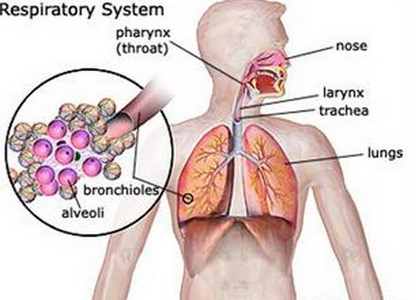Hypersensitivity Pneumonitis – Symptoms, Causes, Treatment
What is Hypersensitivity Pneumonitis?
Hypersensitivity pneumonitis is a condition wherein the alveoli inside the lungs are inflamed because of hypersensitivity reaction. This is also referred as extrinsic allergic alveolitis.
The body’s immune system reacts to the inhaled dust which can consist of molds or fungi, bacteria or any organic matter thus causing the inflammation.
The alveoli are the tiny and fundamental structures inside the lungs. These are grape-like structures where the exchange of oxygenated and unoxygenated gas happens. If the alveoli are irritated, the symptoms such as shortness of breath is experienced about 4 to 6 hours after inhalation of the irritant.

Hypersensitivity Pneumonitis Symptoms
There are 2 categories of hypersensitivity pneumonitis- the acute and chronic types; and the symptoms depend on how long the patient experiences the allergic reactions.
Acute Type
In the acute category, the patient will likely experience the problem within 4 to 6 hours of exposure into the antigen. Then the patient will experience the symptoms like:
- chest tightness
- headache
- dyspnea or difficulty of breathing
- body malaise
- fever and cough.
- Nodules in x-ray — When chest x-ray is taken, doctors will notice some nodules but it will soon disappear a few hours after the exposure.
Chronic Type
In the chronic category, the patient does not experience acute episodes or attack. Instead, there is a subtle onset of symptoms like
- fatigue
- difficulty breathing and
- even weight loss.
- Clubbing of fingers is also noticed.
- Fibrous deposits in alveoli – With the chronic stage; there are fibrous deposits in the alveoli instead of nodules found in the x-ray result.
The condition should be addressed right away so that the hypersensitivity pneumonitis is reversed.
Causes, Riskfactors
There are about 300 possible causes of hypersensitivity pneumonitis and most of the antigens are related to patient’s work. The exposure of the organic materials are mostly due to occupation like
- farming
- cattle workers
- poultry workers
- veterinarians
- those who works in the grain and flour
- textile workers and many others.
The probable organic matter includes:
- cheese molds
- grains
- shell dusts
- moldy hay
- paprika dusts
Diagnosis
Diagnosing hypersensitivity pneumonitis is diagnosed upon the presentation of the symptoms and with laboratory tests like chest x-ray and blood works.
Sometimes biopsy is taken to ensure that the problem is not cancerous in nature especially in chronic hypersensitivity pneumonitis.
Hypersensitivity Pneumonitis Treatment
Treatment goal is directed towards avoiding exposure to the allergens and taking of corticosteroids.
Avoid allergen exposure
It is important to avoid exposure to the probable cause of pneumonitis especially in the workplace. But if it cannot be completely avoided, wearing of protective gear like masks is also recommended. However, if the diseases are worsen, in some occasions, the need to leave work and transfer home is necessary to avoid complications of the condition.
Corticosteroids
To those relatively healthy individuals and experiences acute hypersensitivity pneumonitis, their allergic reaction will subside after a few hours provided that there is no additional exposure to the allergens. But in order to hasten the recovery period, doctors may suggest taking of corticosteroids. This is only recommended to patients who are taking the drug for a short-term period since corticosteroids can result to weight gain and even diabetes in the future
Antibiotics
Sometimes, antibiotics are also required if infection is involved due to the bacteria present in the allergens. But before prescribing the right antibiotic, diagnosis and proper identification of the bacteria through blood culture is important.
Life style changes & Home remedies
Along with that, there are home remedies and lifestyle changes that go along with hypersensitivity pneumonitis. Oxygen therapy may be done especially if the patient has trouble breathing. Drinking lots of water is also helpful to wash away the allergens and to keep the body hydrated. Adequate rest periods is also necessary to recover faster.